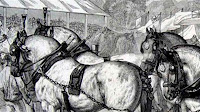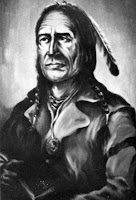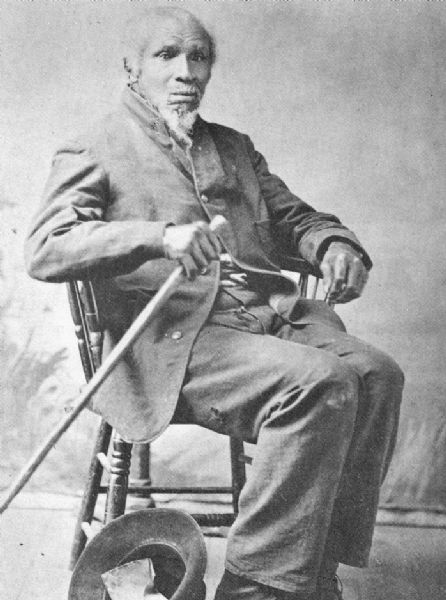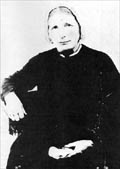
Awakening at dawn on Wednesday morning Charley pondered his promise to take Josey to the potluck supper at the school. As he remembered, the time of the affair was to be 6:00 p.m. Then another thought came to mind: When I go to the house to pick up Josey, I may have to face Mother. I don't want a confrontation; I just want to avoid her. He knew he might lose his temper if they met, and would say things they he would regret.
After dressing, he washed up, then prepared breakfast.
Dawdling minutes over his coffee, he finally stacked the dirty dishes in the sink, locked up and walked to the telegraph office.
Nelson, the telegrapher, was working on the land title books, his head glued to documents. Without looking up, he said, "Nothing on your
three pets so far this morning. I understand you went to Winnipeg to look for them."
"Yup. I found Murray celebrating in a saloon. He said LaRose and Godon left him before he got to the mouth of the Assiniboine River. They went cross-country to the West according to him." Disgustedly, he added, "I came home on Tuesday, the trip was wasted effort."
"If anything comes in on the wire, I'll drop by your place. I'm working on the records now; ever since
the fire Vaughn and I have been trying to set things right. By geeze! We lost a lot of the county documents. Luckily, Vaughn saved all his personal notes of transactions. We're making do from them. Thank the Lord you two managed to rescue the citizenship and tax files.”
"Yes, but we lost all the court records -- guess they were too far back from the door. Still, the trial judges in past cases should have copies. Those narrow metal cabinets with the saddle records were mighty heavy when we rolled them out the door. They toppled over onto the sidewalk when we pushed them out. Did the rain hurt them?"
"Naw, a few runs in the ink, but they're still legible." He turned in his chair, facing Charley. "Going to the library fund-raiser supper tonight?"
"Sure am. I understand they're going to put the books in that old cabin just across the street from the new courthouse. I'm escorting Josey Watkins to the affair."
"Lucky man! You should settle down and marry that woman. She's a real lady, a beauty too."
Charley's smile was weak, "I'll think it over, but being single has its advantages. Maybe I'm getting too old for the double harness."
Nelson had heard of Marguerite's leaving for Chicago. He dearly wanted to comment, but wisely decided to keep his mouth shut. He had heard that Charley had been despondent since Marguerite left. He knew few of the circumstances, but felt Charley had treated Marguerite shabbily. He had personally admired the girl's beauty, personality, and intelligence.
Charley discovered that John and Hannah also planned to attend the library event so he endeavored to enlist Ned Cavalier's aid in tending the saloon.
"Not a chance, Charley. I'm going to be there to ogle the ladies. 'Sides that; Frank Wardwell and I are working on a list of books we're ordering from Chicago. Several will be old classics, Milton, Keats, and Shelley, but we plan on some light reading too, maybe Hawthorne, Cooper, Goldsmith, Poe and others. Say, I'll get Mack to work for you -- I'll see him at noon. He'll sneak a drink or two to satisfy his longing though."
"It doesn't matter. When will you know if he'll work?"
"I'll have him stop by early this afternoon. Have the commissioners given you much grief on the escape?"
"They don't blame me as much as they hold it against Parker. I told them what happened, that it was a touchy situation. They simmered down when they realized Parker might have died from the poison."
Mack Cavalier showed up in the late afternoon enabling Charley time to go upstairs and shave. An hour later he found Josey sitting on his mother's veranda. She stood eagerly as he entered the gate.
Her smile complimented her loveliness; her simple, light blue dress was a perfect match for the long, blonde hair combed back over her shoulders.
"I was hoping for a lengthy walk to the school, but I'm disappointed, it's only a block away."
"If you want a longer walk, we can go around the block."
"No, you'll have to carry this heavy roaster. It's my donation to the supper, a beef stew. We can take a long walk later." She turned to pick up the container, which was lightly wrapped in a towel. Turning, she handed it to him gingerly, saying, "Watch out, it's hot!" Walking to the fence, she opened the gate, allowing him to pass ahead of her.
The schoolhouse, only a block to the east, seemed surrounded by a conglomeration of people, mostly gathered along the sidewalk, but many more formed into a huge cluster on the street. Charley anticipated the building would be crowded, the turnout obviously heavy. Threading his way through the throng he entered the school to place the roaster on a long table already heavily laden with food. Rejoining Josey outside, they visited with bystanders until a small hand-bell rang shrilly, summoning everyone to the meal.
The line entering the door passed by Jud LaMoure's wife who was seated at a small table alongside the donation basket. Charley knew that her presence guaranteed a fair payment for each supper -- she would stare down deadbeats.
The file of patrons extended to the nearest end of the long buffet table upon which rested a heaped stack of heavy white stoneware. Alongside the plates were panniers containing utensils and napkins -- here the line split to each side. As they moved along the serving table Charley noted that Josey chose sparingly of the food, but he felt no qualms at loading his plate, he was hungry.
At the end of the table two ladies served coffee from a large urn. Finally seated across from Arlo Johnson and his wife, owners of the Double Decker Saloon, Charley inquired of Johnson, "Where did the committee find all the plates and hardware?"
"Mostly from the hotels, but several of the boarding houses contributed -- many of them sent food. Good thing too, looks like the whole town has turned out. In fact a lot of St. Vincent folks are here. They'll never get everyone inside; we'll have to move out after we eat to make room for others."
"I think starting a library was a grand idea," said Josey. "Who organized the project?"
"Frank Wardwell is the visionary," said Mrs. Johnson. "He's done so much for our children, we should be thankful."
"He's a hustler," Charley mumbled. He was busy with his heaped plate.
As they were finishing their dinner, schoolgirls served varieties of pie and additional coffee. Hurriedly eating her dessert, Josey nudged Charley, and then stood up. "We can't be selfish. Look at the lineup at the door."
After a last sip of coffee Charley arose and they stepped outside. "Where do we go from here?" he asked. "Want to walk about town? We can go across the bridge to the grove, the area they're planning to make into a park. Nothing much to see though, just a view of the river and ferry."
Taking his arm possessively, she said, "Why not? I'm not in the mood to go home just yet."
It was nearly 7 p.m. when they seated themselves along the sloping grass of the hill overlooking the ferry. As they watched, the ferry operator was transporting a buggy and farm wagon across to the Dakota side of the river.
While turning the crank on the large drum that propelled the barge the operator was apparently speaking with his customers.
"Does he keep busy?" Josey asked.
"It's steady work, but I don't envy him. It takes elbow grease to crank that windlass day after day, and when a steamboat sounds its whistle he must hurry to lower his cable to allow it to pass by. Otherwise they'll tear and break his wire.”
"How does he do that, I mean lower the cable?"
"The cable is attached with a tightening winch at each end, anchored to a dead man on shore. By loosening the winch on either shore he can slacken the steel cable so the boat can pass over it."
"Charley, what about us?" She crowded to him, her thigh touching his. "We were so close at one time; have you lost all feeling for me?"
He looked at her speculatively, "If you knew how many times I berated myself for not taking your virginity that last night before your marriage, you'd be shocked."
"I wish you had, for I would have been spoiled goods and perhaps Arthur wouldn't have wanted me. I made it clear that night that I wanted you, but you turned me down."
"Yes, my damned conscience prevented me from compromising you. I wanted everything to be perfect when we married. I was gauche, an idealist." Bitterly he said, "I've grown up since then."
"We can go on from there," she pleaded. "Does it bother you that I have two children?"
"No, that has nothing to do with it; both George and Lucy are grand kids."
"Then what? Do I have to throw myself at you? My feelings haven't changed over the years. I married to prevent my Father from going to jail or possible execution. I'm not proud to say it, but my Father was involved in smuggling. My future husband blackmailed him. He would have been exposed if I hadn't done what he asked. I never loved my husband, but I put up with him, I had to. Am I being too bold? Is my supposed wealth bothering you? It isn't that much, just enough to keep the children and me secure."
"It's not that simple. I'm pretty much set in my ways, marriage seems a big leap. Honestly, I hardly know my true feelings. It's not stress, it's just that so much has happened lately that I can't seem to get things straight in my mind."
"It was that girl, wasn't it? I did hear you were in some way attached to a woman from St. Vincent."
"Josey, I'm not confessing my sins to anyone, even a priest. Yes, I thought the world of Marguerite, but I couldn't reconcile the fact that she was Métis, a breed. I lost her, never realizing how much she meant to me until it was too late."
She reached over to take his hand, turning her head to look directly into his eyes. "So that's really the problem!" Her faint smile seemed to turn bitter. You turned me down that night long ago and now your moral upbringing has made you fail that girl too." The look on her face gradually changed, then she said sympathetically, "Oh, Charley, you've so many adjustments to make, perhaps this isn't the time. It's too soon. Let's let things stand awhile. I'm not leaving for another few weeks; perhaps we can reconcile our differences and see each other occasionally." She released his hand and arose to her feet. "Let’s walk around a bit." She teased, "You might even buy me a soda at the drug store."
A partial feeling of relief came, although he was still unsettled in mind. He had dreaded talk of marriage so soon after losing Marguerite. He knew Josey was serious in her overture. She had left nothing to chance; she had laid it on the line.
 One of the most signal projects which he has yet undertaken was instituted in 1879. It was the establishment of a Farm Colony for Sportsmen, in the extreme northwestern county of Minnesota, adjoining the Manitoba line. There, in the midst of the finest game and grain-producing region in America, he gathered around him many old friends of the rod and gun, and erected a large hotel at a cost of $12,000, which he hoped would become a stated resort for sportsmen during the summer and autumn seasons. His location was on the St. Paul, Minneapolis & Manitoba Railroad, and was called Hallock. It is the county seat of a rapidly developing section. He attempted to place the enterprise in the hands of a stock company because Jim Hill had frozen his tourists out. His scheme included a sylvan park of primitive forest, beautified by a winding river, where sportsmen might locate summer cottages and escape from periodical heated terms, but it failed. Carnegie would not assist. In 1892, Christmas night, the hotel burned up without insurance.
One of the most signal projects which he has yet undertaken was instituted in 1879. It was the establishment of a Farm Colony for Sportsmen, in the extreme northwestern county of Minnesota, adjoining the Manitoba line. There, in the midst of the finest game and grain-producing region in America, he gathered around him many old friends of the rod and gun, and erected a large hotel at a cost of $12,000, which he hoped would become a stated resort for sportsmen during the summer and autumn seasons. His location was on the St. Paul, Minneapolis & Manitoba Railroad, and was called Hallock. It is the county seat of a rapidly developing section. He attempted to place the enterprise in the hands of a stock company because Jim Hill had frozen his tourists out. His scheme included a sylvan park of primitive forest, beautified by a winding river, where sportsmen might locate summer cottages and escape from periodical heated terms, but it failed. Carnegie would not assist. In 1892, Christmas night, the hotel burned up without insurance.

































